
- Products
- Why Nudura
- Nudura Project Applications
- Training Academy
- Resources
- Company
We’ve all seen the devastation that comes when tropical storms and hurricanes make landfall. Beyond the substantial property damage, lives are lost and communities are, sometimes quite literally, turned upside down. But what if that didn’t have to be the norm?
Hurricane-resistant construction is feasible, so it is important that homeowners along the coasts and in other disaster-prone areas investigate these durable building materials to safeguard themselves, their loved ones and their houses.
One of the easiest ways to build a disaster-resilient home is with insulated concrete forms, or ICFs. Insulated concrete form construction ensures stability in the face of the high-speed winds, severe rain, flying debris and flooding that can come with hurricanes. ICFs can make your house truly your “forever home”.
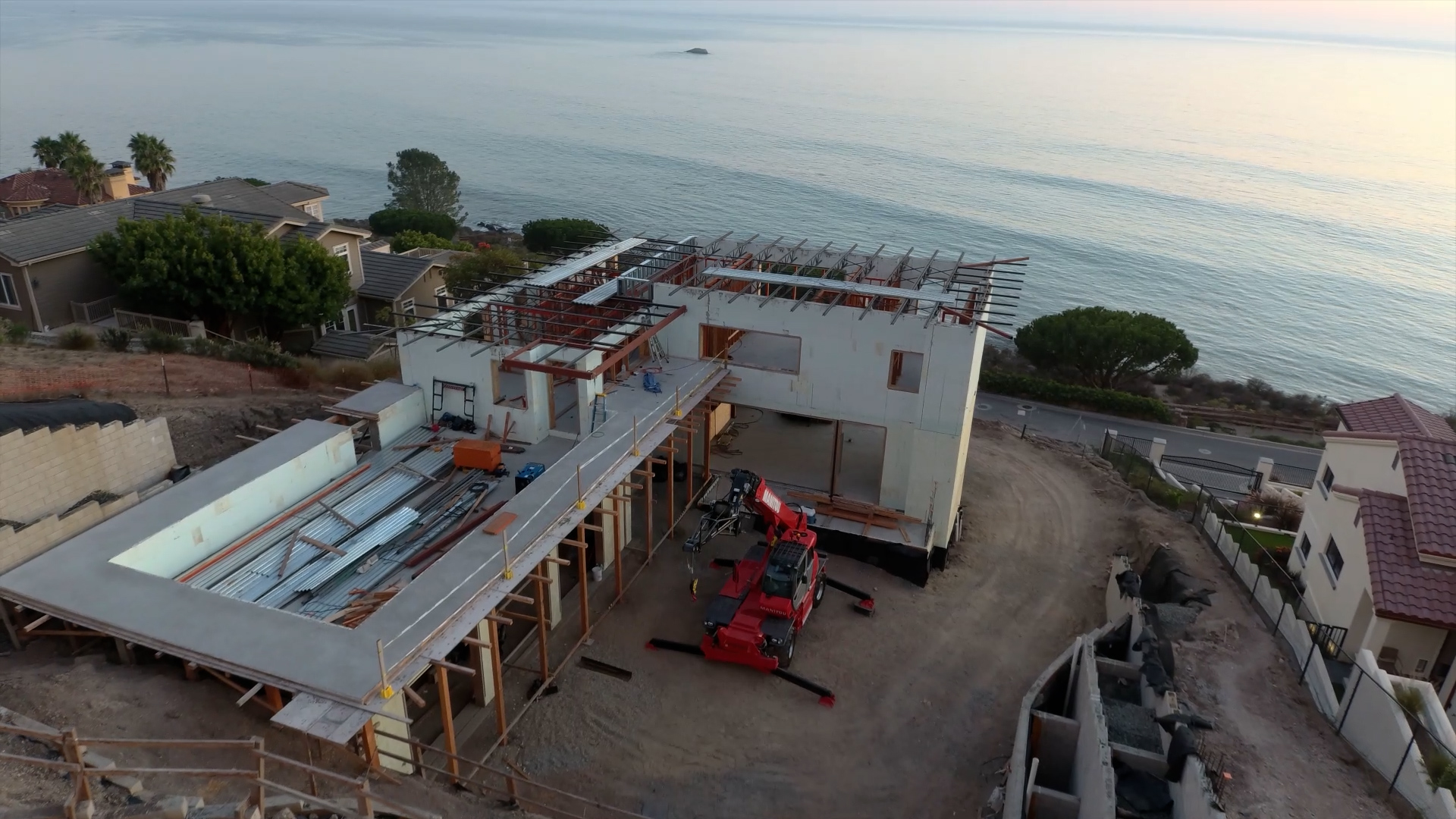
What are ICFs?
Insulated concrete forms from Nudura are dual-sided forms of expanded polystyrene (EPS) foam connected by a web system, that are stacked, steel reinforced then filled with concrete. Once cured, you have a solid concrete wall with continuous interior and exterior insulation.
Wood framing, the typical construction method for residential homes, on the other hand, leaves large air pockets in between the wood studs that are injected with soft bat insulation. With only drywall and a cladding material like vinyl siding as a shield, these cavities can be easily punctured by windblown debris during a hurricane, leaving buildings and their occupants vulnerable during extreme weather.
In comparison, ICF walls offer virtually impenetrable concrete between you and the elements, in addition to the drywall and façade. Insulated concrete forms adds superior strength to your home, accompanied by long-term energy-efficiency, cost-savings from lower heating and cooling bills, and soundproofing, which is especially helpful in the midst of loud storms.
Why use ICFs for Coastal Homes?
Weather the Storm
Living on a coastline, you regularly experience storms of varying intensities, but it only takes one to cause catastrophic damage. Insulated concrete form wall systems, with their reinforced steel and concrete core, are the basis for hurricane-resistant homes that can weather any category storm.
Life safety is a critical component of construction and an often-overlooked feature of building materials. As a homeowner, having an ICF house puts the power back in your hands. Insulated concrete forms give you peace of mind that your home will stay standing even during the worst weather. While you can rebuild physical structures, you can’t bring back the life of a loved one. And living in an ICF home, you won’t have to worry about either scenario.
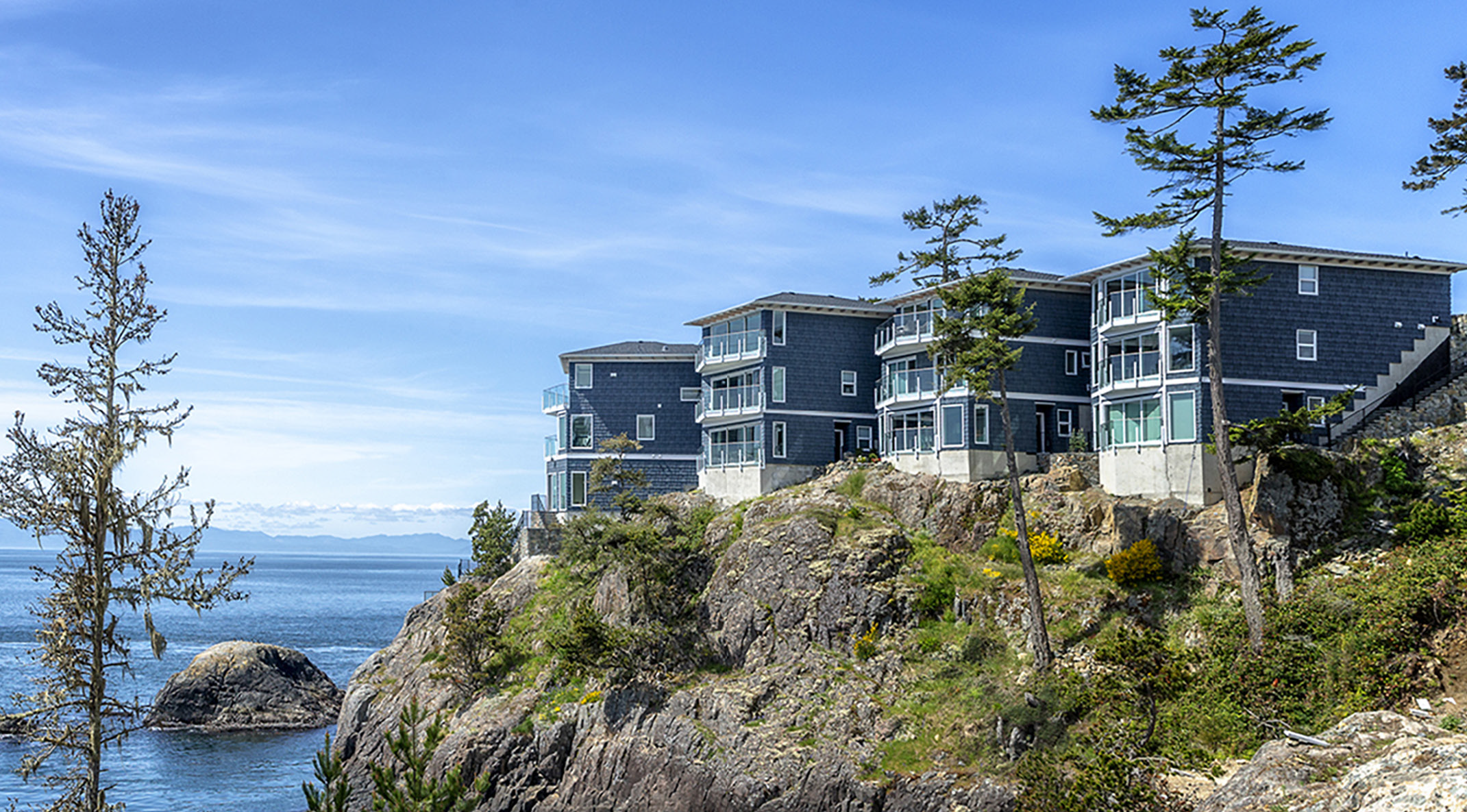
The strongest umbrella for your house
For homeowners concerned about getting water into their homes, ICF Builder Magazine writes, “ICFs are one of the best construction choices for areas prone to moisture concern.” In coastal climates, there’s always going to be rain, however that doesn’t have to mean exposure to mold or water damage. Building with ICFs for your above-grade and below-grade walls reduces the use of wood, which is susceptible to rot when saturated. EPS foam, the material used in Nudura’s insulated concrete forms, is naturally hydrophobic, so when paired with a reliable drainage and waterproofing system, ICFs will keep your house free from moisture infiltration, mold and mildew. Even in serious cases of flooding, if there is standing water in your ICF home, you won’t have to rip out any wood studs or rebuild your walls as part of the repair. With ICF construction, simply replace the drywall up to the flood line and you’re good to go.
Avoid destruction after construction
The wind-driven rain and forces of a hurricane can devastate buildings in the form of flooding and water damage, impact from flying debris, roof tear-off, or a total collapse. This is unfortunately commonplace for wood-framed houses which can lose their structural integrity when the main source of stability swells with water and is exposed to extreme winds.
Insulated concrete form walls can withstand the water, high-speed winds and debris, and have proven resilient in several major hurricanes. Plus, with engineered metal hurricane ties to secure the roof to the solid concrete walls, even strong uplift forces are no match for ICF homes.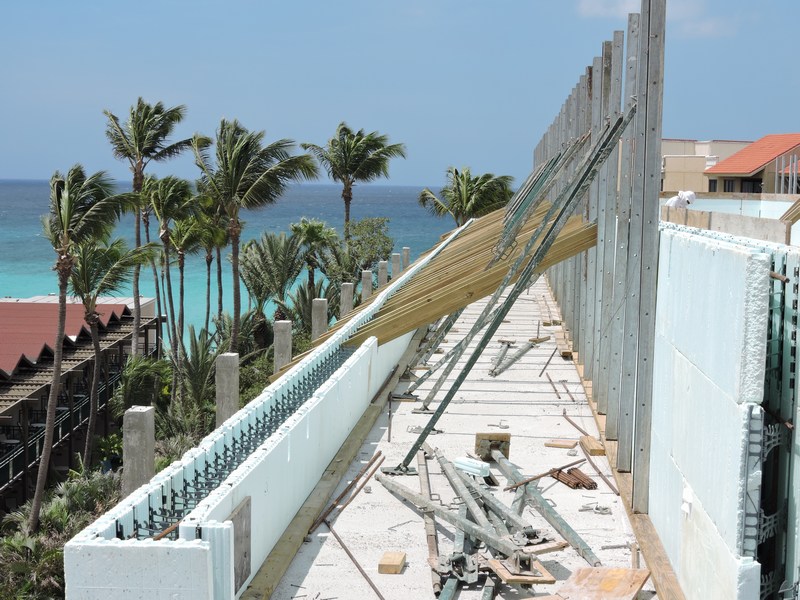
The strength of Nudura ICFs have been further verified through debris impact testing at Texas Tech University in accordance with FEMA 320/361 and ICC-500 guidelines. Here, a 15 lb. wooden 2x4 was shot at 100 mph at an ICF wall to simulate flying debris from a 250-mph tornado. As the video below illustrates, the concrete wall remains intact with limited damage to the EPS foam.
Conversely, when conducting the same test for wood frame construction, the projectile penetrates all the wood-framed walls regardless of the cladding material, demonstrating the disastrous effects of a hurricane or tornado on a wood home.
Play it safe with ICFs
You can also use ICFs to construct a safe room or storm shelter inside of or next to your home for added reinforcement. A safe room built to meet the Federal Emergency Management Agency (FEMA) criteria provides “near-absolute protection in extreme weather events”, which means its occupants have a very high probability of being safe from injury or death. In coastal areas where life safety of construction is repeatedly tested, you shouldn’t take the risk on your home’s building materials.
Nudura ICFs build complete safe houses, but if your home is already constructed and you want a separate space for extra protection, ICFs can erect a detached garage or shed as a functional safe room. However you decide to incorporate ICF construction on your property, you will receive a resilient structure with increased impact resistance and strength compared to wood-frame buildings.
Case Study: An ICF Home after Hurricane Michael
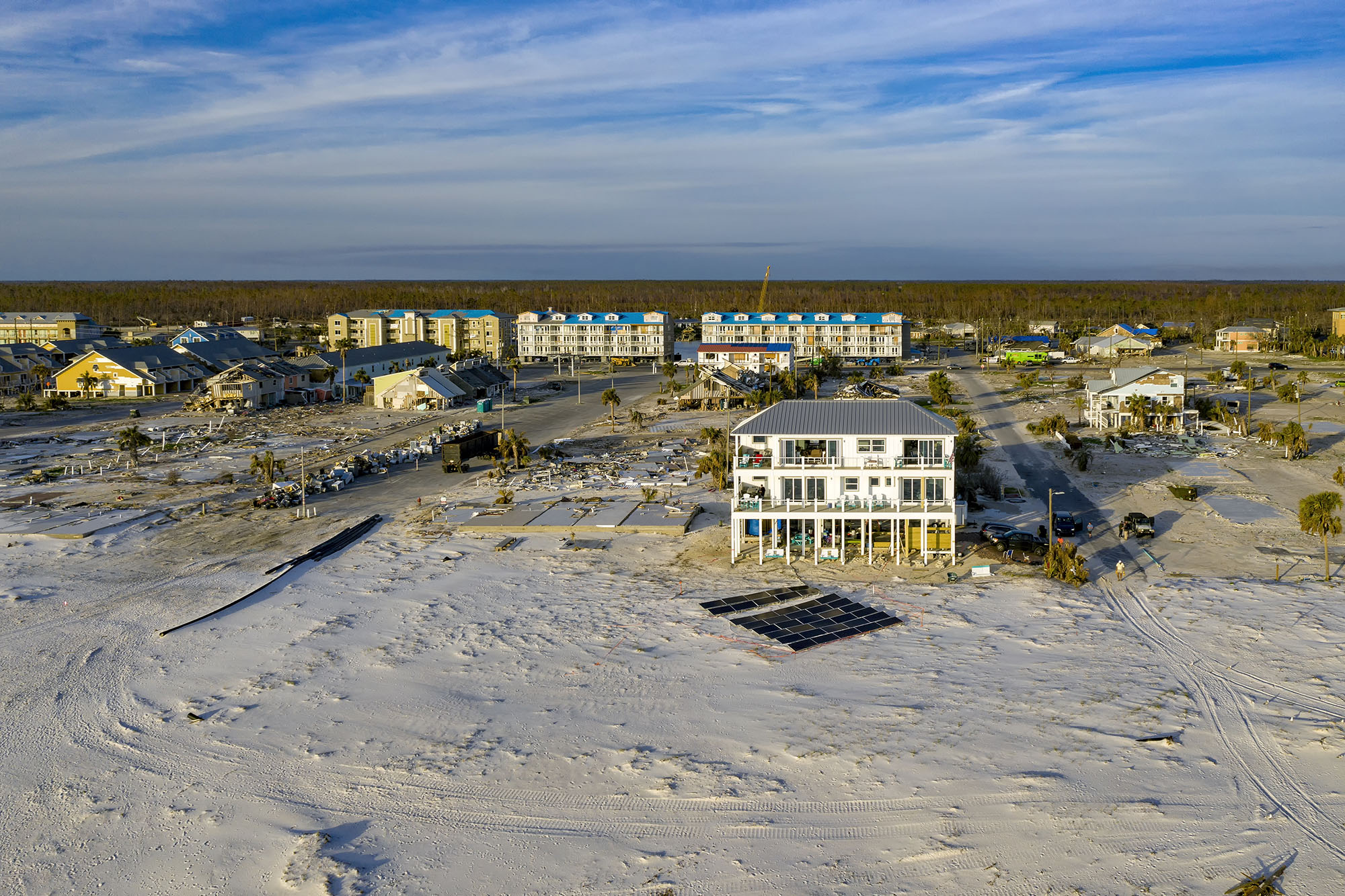
In October 2018, Hurricane Michael ripped through the Florida panhandle and leveled the coastline of Mexico Beach, except for one house. The three-story vacation home, known as the “Sand Palace”, was designed with durability as the top priority to endure the inevitable storms. The owner, Dr. Lebron Lackey, said they considered disaster resiliency “at every point, from pilings to the roof and everything in between…We went above and beyond code” to survive “the big one.” The house was constructed with Nudura insulated concrete forms in combination with other strong building materials to withstand the hurricane-force winds. The owners’ preemptive efforts saved them the extensive financial costs of having to rebuild their home and ultimately served as a beacon of hope for the future of beachfront construction.
ICFs Homes for hurricane-resistance
Hurricane Michael caused $25 billion worth of damage. After a storm, we can calculate its economic impacts and quantify the money needed for recovery, but we can’t measure the emotional toll it takes to resurrect a home or an entire city from scratch. The financial costs are minor compared to the tragic loss of lives in the wake of these weather events.
While you can’t prevent a natural disaster, you can protect your house, your family, and your belongings from disaster by building proactively with ICFs. With insulated concrete forms, you can have a hurricane-resistant home on any coast or tropical paradise and trust that it will endure the most severe climate conditions.
Disaster-resilient construction is attainable. You don’t have to accept vulnerable building materials just because they are commonplace in the market. You should advocate for the safety of your home and your family. Quite literally, your life could depend on it.
To begin the process of building your home with ICFs, contact a local Nudura representative.
For safety tips following a hurricane, view the “What to Do After a Hurricane” guide from FORTIFIED.
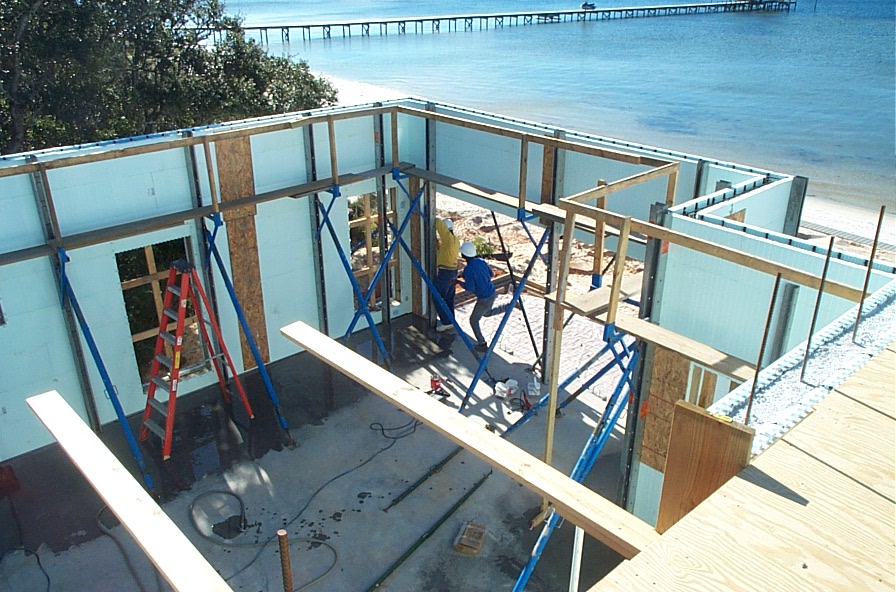
CONTACT US
We’re committed to supporting homeowners and design professionals who are interested in or use our products. We’re always happy to help and provide more information.




